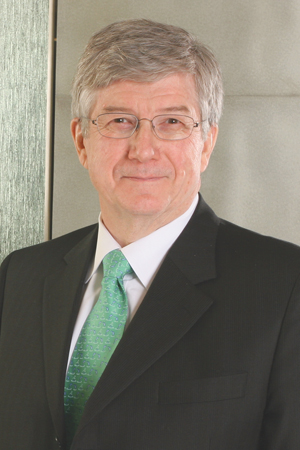Professional angst over incivility tends to wax and wane, but a new crusade has begun to ensure lawyers and the public know that being civil is an important part of being a lawyer.

In fact, Law Society of Upper Canada Treasurer Derry Millar is making a personal project of cementing civility into a protocol for all legal professionals to follow.
Before Millar finishes his term in June, he’s determined to raise awareness about the issue in the profession. His interest was piqued by a number of red flags. “One of the things that concerned me was that from 2004 until 2008, complaints about incivility increased from 11 per cent to 33 per cent of total complaints.
And when both the Coulter Osborne report and the Code-LeSage report talked about it, it was clear to me that it is an issue that needed to be addressed.”
Millar convened a series of provincewide meetings on the issue from November until February. Allan Stitt of ADR Chambers facilitated the open-ended discussions addressing what to do when faced with incivility and the challenges of reporting it.
“The stories and suggestions that came from the members of the bar, senior judges, and law clerks were absolutely fascinating,” says Stitt.
Andrew Murray, a partner at Lerners LLP’s London, Ont., office and incoming vice president of the Ontario Trial Lawyers Association, believes it’s important to remind people that civility is one of the things that distinguish a profession from a trade. “We are all working for the common good of excellent advocacy,” he says.
“When we articulate a client’s position, it’s not personal. People are shocked when I’m not opposing them on every undertaking. I like to tell them, ‘I put the civil in civil litigation,’ and they find that disarming. But it’s a nicer way of existing in this world and it yields very good results for the client.”
Murray finds little problem with incivility in smaller communities like London and thinks many of the issues are “Toronto-centric” as a result of working in a city “where lawyers run into each other much less frequently and there are too many rats in the cage.”
But Millar says the forums disproved this theory. “Usually, at the beginning of discussions in regional centres, people would say, ‘We don’t have that problem here.’
But as people got talking, they recognized different types of incivility that were a problem for them. Our statistics show that complaints about incivility come from all over the province.”
There will be a report on the meetings, which Millar hopes to present to Convocation before the end of his term. Recently, he has posted civility protocols on the law society web site outlining how to approach the problem. The protocols are aimed at the judiciary, which deals with civility issues every day.
“Recommendation 34 of the Code-LeSage report says that courts have a role to play if conduct violates the Rules of Professional Conduct,” Millar notes. “The protocols deal with referrals and communication afterwards.
In my discussions with Michael Code and Pat LeSage, it became clear that the law society had communication problems. Judges thought that if they referred serious problems to the law society, they would never hear back.
They had stopped sending matters over because they thought the law society didn’t do anything, which was incorrect, but it was obviously necessary to correct the perceived communications problem.”
Glenn Hainey, an elected bencher, undertook discussions with judges from the Ontario Court of Justice, the Superior Court, and the Court of Appeal. They indicated some people could improve through mentoring.
It was also apparent there was a reluctance to report behaviour that was inappropriate but not serious enough to merit disciplinary action. As a result, the protocols direct judges to refer incivility complaints for mentoring rather than discipline.
“Part of the problem is that there is not as much mentoring going on these days,” Millar points out. “With the issues with legal aid, there are not as many young lawyers working for other criminal lawyers.”
The law society intends to draw on mentoring programs already run by bodies such as the Criminal Lawyers’ Association, The Advocates’ Society, the Ministry of the Attorney General, and its own professional development and competence department.
Mentoring will be voluntary, but a lawyer who refuses assistance may then move into the regulatory process with the potential of disciplinary action.
“As part of the protocol, the judge or justice of the peace who observes the behaviour should be the one to report it,” says Millar.
“If lawyers complain about problems of incivility, they go to the complaint resolution department, which attempts to resolve it by educating people about best practices and may refer people to mentoring as well.
It may be that someone simply doesn’t understand that things could be done in a better way. If they make the change, the matter may be resolved. Each case is different.”
In fact, referrals have been coming in under the new system since last year. “Now the judiciary feels there’s a communication channel that’s working,” Millar notes.
But it remains to be seen if reporting will increase as a result. Murray suspects it won’t. “I’m sure everyone hopes that we can self-regulate so it’s not necessary to make an example of people,” he says.
“I hope we can contain ourselves and I think we’ve already made strides in that direction. People are practising self-censorship more, although it may just make them more quietly uncivil. You never know what people are thinking.”

 In fact, Law Society of Upper Canada Treasurer Derry Millar is making a personal project of cementing civility into a protocol for all legal professionals to follow.
In fact, Law Society of Upper Canada Treasurer Derry Millar is making a personal project of cementing civility into a protocol for all legal professionals to follow.